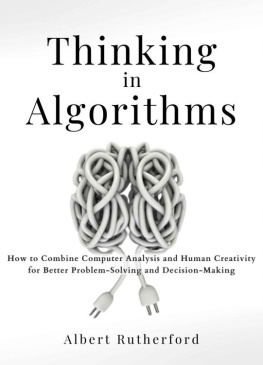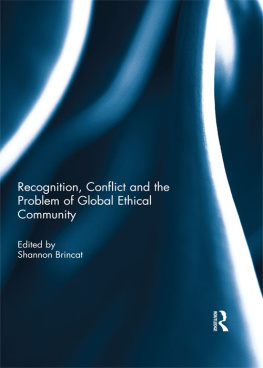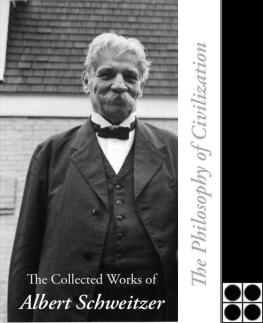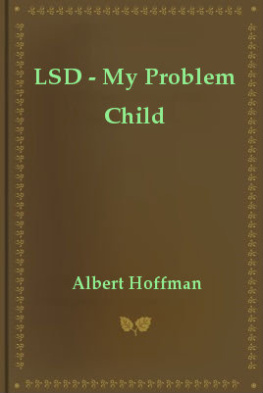An Ethical Problem
By the Same Author
RAMBLES IN JAPAN WITHOUT A GUIDE. London, 1892
ILLEGITIMACY, and
THE INFLUENCE OF SEASONS UPON CONDUCT. London and New York, 1893
VIVISECTION IN AMERICA. New York, 1895
THE VIVISECTION QUESTION. New York, 1901
THE MORALITY OF LONDON. London, 1908
THE VIVISECTION CONTROVERSY. London, 1908
AMERICAN MEAT. London and New York, 1910
AN ETHICAL PROBLEM
OR
SIDELIGHTS UPON SCIENTIFIC EXPERIMENTATION ON MAN AND ANIMALS
BY
ALBERT LEFFINGWELL, M.D.
LATE PRESIDENT OF THE AMERICAN HUMANE ASSOCIATION AUTHOR OF "THE VIVISECTION QUESTION," ETC.
SECOND EDITION, REVISED
LONDON G. BELL AND SONS, LTD.
NEW YORK
C.P. FARREL, 117 EAST 21st STREET
1916
PREFACE
The position taken by the writer of this volume should be clearly understood. It is not the view known as antivivisection, so far as this means the condemnation without exception of all phases of biological investigation. There are methods of research which involve no animal suffering, and which are of scientific utility. Within certain careful limitations, these would seem justifiable. For nearly forty years, the writer has occupied the position which half a century ago was generally held by a majority of the medical profession in England, and possibly in America, a position maintained in recent years by such men as Sir Benjamin Ward Richardson of England, by Professor William James and Dr. Henry J. Bigelow of Harvard University. With the present ideals of the modern physiological laboratory, so far as they favour the practice of vivisection in secrecy and without legal regulation, the writer has no sympathy whatsoever.
An ethical problem exists. It concerns not the prevention of all experimentation upon animals, but rather the abolition of its cruelty, its secrecy, its abuse.
Written at various times during a period extending over several years, a critic will undoubtedly discover instances of repetition and re-statement. Now and then, it has seemed advisable to include matter from earlier writings, long out of print; and new light has been thrown upon some phases of a perplexing problem. Will it tend to induce conviction of the need for reform? Assuredly, this is not to be expected where there is disagreement regarding certain basic principles. First of all, there must be some common ground. No agreement regarding vivisection can be anticipated or desired with any man who holds that some vague and uncertain addition to the sum total of knowledge would justify experiments made upon dying children in a hospital, without regard to their personal benefit, or sanction the infliction of any degree of agony upon animals in a laboratory.
A liking for the use of italics as a means of directing attention to certain statements is confessed. But wherever such italicized phrases appear in quotations, the reader should ascribe the emphasis to the writer, and not to the original authority.
The inculcation of scepticism regarding much that is put forth in justification of unlimited research is admitted. It seems to the writer that anyone who has become interested in the question would more wisely approach it with a tendency toward doubt than toward implicit belief; to doubt, however, that leads one directly to investigation. We need to remember, however, that inaccuracy by no means connotes inveracity. There is here no imputation against the honesty of any writer, even when carelessness, exaggeration and inaccuracy are not only alleged, but demonstrated to exist. A. L. Aurora, N.Y., 1914
-
PREFACE TO THE SECOND EDITION
Another edition of this work being called for, the opportunity for one or two emendations is afforded.
In the first chapter of the present work, reference is made to the antivivisection societies of England, and, relying upon evidence given before the Royal Commission in 1906, one of them is mentioned as the "principal organization." The relative standing or strength of the different societies at the present time would appear not to be determined or easily determinable, and, of course, what was fact in 1906 may not be at all true ten years later. The matter would seem to be of little importance as compared with the greater questions pertaining to reform; but in the interest of accuracy the author would now prefer to make no pronouncement concerning the relative rank of the English societies, leaving decision as to precedence to those who give them financial support.
Though the first edition of the present work was quite large, yet no challenge of the accuracy of any of its statements concerning experimentation upon human beings or animals has yet appeared. To hope for absolute accuracy in a work of this character may be impossible; yet that ideal has been constantly before the writer. Should any errors of the kind be discovered to exist in the present edition, their indication is sincerely desired.
In the chapter "Unfair Methods of Controversy" some illustrative cases were given without mention, now and then, of the persons criticized. It seemed to the writer that in certain instances it should be quite sufficient to point out and to condemn inaccuracies and errors without bringing upon the record every individual name. No misunderstanding could possibly exist, since the references were ample in every case. But since this reticence, in at least one instance, has been criticized by an unfriendly reviewer, it is perhaps better to state that the repeated allusions to Lord Lister's journeyings to France, and the article in Harper's Monthly for April, 1909, were from the pen of the author of Animal Experimentationa work which is reviewed in the Appendix to the present edition. To his advanced agenow far beyond the allotted spanwe may ascribe the inaccuracies which, at an earlier period of his career, would doubtless have been recognized.
A. L.
CONTENTS
CHAPTER PAGE INTRODUCTION - - - - - xi
I. WHAT IS VIVISECTION? - - - - 1 II. ON CERTAIN MISTAKES OF SCIENTISTS - - 12 III. AN EIGHTEENTH-CENTURY VIVISECTOR - - - 22 IV. MAGENDIE AND HIS CONTEMPORARIES - - - 29 V. A VIVISECTOR'S REMORSE - - - - 47 VI. IS TORTURE JUSTIFIED BY UTILITY? - - 57 VII. THE COMMENCEMENT OF AGITATION - - - 66 VIII. ATTAINMENT OF REGULATION IN ENGLAND - - 88 IX. A GREAT PROTESTANT - - - - 113 X. THE VIVISECTION REPORT OF 1912 - - - 127 XI. THE ANAESTHETIC DELUSION - - - 149 XII. THE VIVISECTION OF TO-DAY - - - 162 XIII. WHAT IS VIVISECTION REFORM? - - - 196 XIV. THE WORK OF REFORM SOCIETIES - - - 216 XV. UNFAIR METHODS OF CONTROVERSY - - - 228 XVI. RESEARCH WITHOUT VIVISECTION - - - 254 XVII. THE FUTURE OF VIVISECTION - - - 276 XVIII. THE FINAL PHASE: EXPERIMENTATION ON MAN - 289 XIX. CONCLUSION - - - - - 326
APPENDIXES - - - - 333-364C INDEX - - - - 365-369 PRESS NOTICES - - - - 371-374
INTRODUCTION
It is now somewhat over a third of a century since my attention was specially directed to the abuses of animal experimentation. In January, 1880, a paragraph appeared in a morning paper of New York referring to the late Henry Bergh. With his approval a Bill had come before the legislature of the State of New York providing for the abolition of all experiments upon living animalswhether in medical colleges or elsewhereon the ground that they were without benefit to anybody, and demoralizing alike to the teacher and student. As I dropped the paper, it occurred to me that the chances of success would have been far greater if less had been asked. That certain vivisections were atrocious was undoubtedly true; but, on the other hand, there were some experiments that were absolutely painless. Would it not be wiser to make some distinctions?










